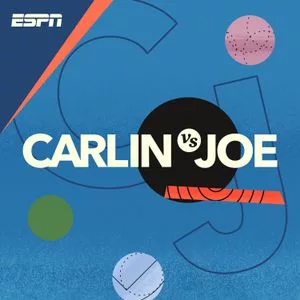In a significant deviation from standard practice within the sport, San Diego Padres officials instructed their organization's athletic trainers to maintain two distinct files of medical information on their players — one for industry consumption and the other for the team's internal use, multiple sources have told ESPN.
Trainers were told in meetings during spring training that the distinction was meant to better position the team for trades, according to two sources with direct knowledge of what was said.
Major League Baseball is close to concluding its investigation of the Padres' handling of the medical information, and the organization and individuals could face discipline.
Shana Wilson, the team's director of communications, said the Padres have been cooperating fully with Major League Baseball's review.
"At this point, it is an ongoing review, and we will refrain from comment until the process has concluded and we receive formal notification of the outcome from MLB," Wilson said. "That said, there was no direction or intent on our part to mislead other clubs with respect to a player's medical information."
According to sources familiar with the fallout from some of the Padres' midseason deals, officials from at least three teams that made trades with San Diego — the Boston Red Sox, Miami Marlins and Chicago White Sox — were enraged by what they perceived to be strategic deception: veiling medical information that could have been pivotal in trade discussions. At least one other team reached out to the commissioner's office with a complaint, according to sources.
All MLB teams feed medical information into a central database known as the Sutton Medical System, designed to both maintain the privacy of individual players and to be accessible to teams when needed — such as when trades are made.
Any time a player goes into the training room and receives treatment — down to hot tubs, aspirin and anti-inflammatories — those details are supposed to be entered into records.
Some teams are known to be more meticulous in note-taking than others — the trainers for the Texas Rangers, Cleveland Indians, Los Angeles Dodgers and New York Yankees, for example, have a reputation for building extensive files, with all available information written down. And, in recent years, other teams found the Seattle Mariners' notes to be less comprehensive.
When teams close in on trades, the athletic trainers usually exchange codes needed to access the medical information stored on the players in question so inquiring teams can learn about a player's physical condition.
Drew Pomeranz, who was dealt to Boston, is one of a few players traded away by San Diego who raised suspicions that the Padres weren't keeping accurate records in the Sutton Medical System as specified by MLB. Richard Mackson-USA TODAY Sports
Todd Hutcheson had been the Padres' athletic trainer for 18 years, but the Padres replaced him in February with a new department leader, Mark Rogow, who had previously worked with the U.S. Department of Defense. After Rogow's hiring, there were a handful of meetings during spring training with the organization's athletic trainers, for the major and minor leagues.
According to two sources with direct knowledge of those meetings, the staffers were instructed by front office officials to document medical details about players into two separate systems.
The athletic trainers were told to post the details of any disabled-list-related medical situations on MLB's central system, but they also were instructed to keep the specifics about preventive treatments only on the Padres' internal notes. One source defined the distinction in this way: If a player was treated for a sore hamstring or shoulder without being placed on the disabled list, that sort of information was to be kept in-house, for use within the organization only.
According to the two sources with direct knowledge of the meetings, the athletic trainers were told that by splitting the medical files into two categories, the Padres would benefit in trade discussions.
At the annual get-together of athletic trainers at baseball's winter meetings in Nashville, Tennessee, in December, MLB officials had informed those in the room that they wanted more medical documentation. Months later, when the Padres' directive to split the documentation was handed down, some Padres staffers were uncomfortable, according to sources, and some expressed that discomfort, with athletic trainers saying there would be backlash for this type of filing system.
According to sources, the Padres reached midseason with dramatically fewer medical entries on their players. An average number of entries for a given team might be in the range of 60 by the All-Star break. The Padres had fewer than 10, according to a source.
"When you don't have any medical information available on a player," said one evaluator who has been involved in trade discussions in the past, "that's not normal."
On July 14, the Red Sox traded one of their best pitching prospects, Anderson Espinoza, for San Diego's All-Star left-hander Drew Pomeranz. Sources within the Boston organization say it wasn't until after the deal was made that they became aware of some of the preventive measures that had been provided for Pomeranz.
On July 29, the Padres traded right-handers Colin Rea and Andrew Cashner to Miami. In the midst of Rea's first outing for the Marlins, he told the team of elbow discomfort. It was only then, according to Miami sources, that the Marlins learned the extent of Rea's problem and that he'd been receiving treatment for weeks. Two days later, MLB executives facilitated the return of Rea to the Padres, with San Diego returning pitcher Luis Castillo to Miami.
MLB pressed athletic trainers on both teams for details about the information that was exchanged, which evolved into debate about what was said in the swap of records. MLB expanded its investigation, with the White Sox and at least one other team expressing concern over the information provided to them by the Padres.
"The whole system has to be built on trust, to some degree," one official familiar with the situation said. "You can't have teams withholding medical information in a baseball trade any more than you have a car salesman not disclosing vehicle history. It can't work. It's about the integrity of the system."
A.J. Preller is the Padres' general manager and oversees baseball operations for the franchise. He previously worked for the Rangers and, when Preller was overseeing their international operations in 2010, he was suspended for violations of baseball rules regarding signings.
He was hired by San Diego in August 2014, after years of developing a reputation for being one of the sport's best and most adept scouts. Preller has been lauded by the Padres' ownership for his work in stocking the team's farm system.
Shortly after Preller took over the Padres, the team was reprimanded by MLB for conducting a workout contrary to industry regulations.












